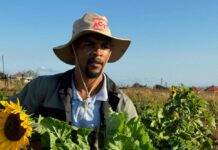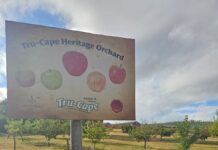“No farmer shall be left behind. That’s why we need time and resources for the European Farm to Fork plan. The first deputy chairman of the EU Agriculture Commission, Paolo De Castro, was the protagonist of a public meeting with Alessandro Malavolti, president of FederUnacoma, held during EIMA, the international exhibition of agricultural and gardening machinery.
“For now we are in the realm of a vision of the future. Subsequent legislation will have to answer some fundamental questions. We have the goal of reducing environmental impact but we have to decide how. And we need to develop non-GMO genetics. It takes innovation and technology, assisted evolution techniques. But all of this must be done without leaving anyone behind. And without decreasing agricultural production with an increase in imports.” So says Paolo De Castro, first deputy chairman in Brussels of the EU’s Agriculture and Rural Development Committee, MEP and professor at the University of Bologna.
De Castro was a guest today at EIMA, the international exhibition of agricultural machinery currently taking place in the pavilions of BolognaFiere, for a public meeting with Alessandro Malavolti, president of FederUnacoma, the sector association that organizes the Emilian event. The meeting was an opportunity to take stock of the EU Farm to Fork programme, the European Union’s strategic plan for the sustainable growth of agriculture, and of the new CAP, the Common Agricultural Policy.
According to De Castro, in order to face the expected green transition “we need time and resources, we must wait until the new technologies that will allow us to implement the plan are available to farmers: the legislative acts that will follow will have to take this into account”.
During the meeting, at the urging of Malavolti, speaking of the CAP, De Castro recalled that it will bring to Italy, in the next seven years, 50 of the 360 billion of community resources allocated. And that the reform has three facets – economic, environmental and social – which are binding for obtaining funding.
“The new CAP,” De Castro explained, “is characterised by a flexibility that makes it possible to provide calibrated responses to the many differences that still exist in the European agricultural system and which no longer make sense: the new policy will help us to overcome them”. Malavolti gave many food for thought, starting from the paradox according to which 75% of the Italian agricultural surface is made up of open-field crops and 25% of specialized agriculture, which however generates 52% of the added value produced by the sector.
Malavolti also pointed out the problem of high raw material prices. Mr De Castro pointed out that with the UK’s divorce from the EU, “Southern Europe will have more and more weight in the Agriculture Committee”. As for raw material price rises, he noted that “the economy is going through an overheating phase which is causing prices to spike. But we’re talking about a temporary period.”








